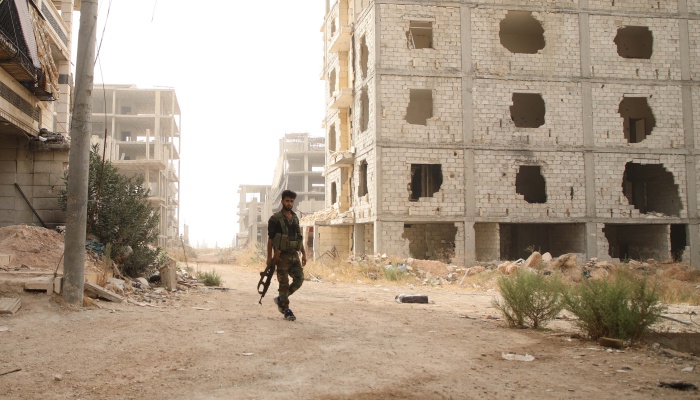Syrian rebels backed by Turkey said on Monday that Moscow and its Syrian government ally were trying to wrest control of two major highways in their last enclave in the northwest of the country in a bid to shore up Syria’s sanction-hit economy, Reuters reported.
The sixth day of the campaign by government forces saw heavy aerial attacks targeting the city of Jisr al-Shughour and the al-Ghab plain, as well as the towns of al-Latamenah and Maarat al-Numan in the south of Idlib province, the rebels said.
Taking those areas would bring President Bashar al-Assad close to regaining control over the strategic M5 and M4 highways from Aleppo to Hama and Latakia on the Mediterranean coast, two of Syria’s most important pre-war arteries.
The first few days of the assault struck at towns in northern Hama and southern Idlib province inside a buffer zone agreed in September between Russia and Turkey as part of a deal which averted a major offensive on the area, the last major foothold of the Syrian rebellion.
Russia and the Syrian army say they are responding to stepped up attacks by jihadists on government-held areas and deny indiscriminate strikes that medics and rescuers say have killed dozens of civilians in recent days, knocked down at least five medical centers, and paralyzed day-to-day life.
The United Nations has said the attacks have included the worst use of barrel bombs by the Syrian army in 15 months. It says an estimated 323,000 people have been displaced in northwest Syria since September last year.
Residents say tens of thousands have fled their homes, many to camps on the Turkish border, since the latest offensive began. Some who failed to reach those camps sought shelter in olive orchards, residents and witnesses said.
Russia says Turkey has not done enough to evict jihadists from the buffer zone or to open the M5 and M4 highways that link cities held by the government and run from Syria’s southern tip near the border with Jordan to the northern border with Turkey.
Opening the commercial and passenger routes through Idlib province would reassert the state’s control over a fragmented economy that sprung up during eight years of conflict and now facing US and EU sanctions, economic experts say.


